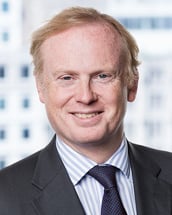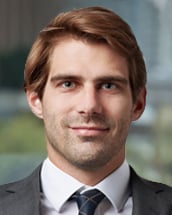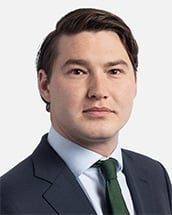In brief
On 24 May 2022, the Dutch Supreme Court passed judgment between, on one hand, the Royal Dutch Shell PLC and 15 of Shell’s in-house lawyers (“Shell”), and on the other hand, the Dutch Public Prosecution Service.[1] The Supreme Court held that both Shell’s and the Public Prosecution Service’s complaints were inadmissible because the decision of the court of first instance should be considered as an ‘interim decision’ (in Dutch: ‘tussenbeschikking’), and interim decisions are not open to cassation. The Supreme Court took the opportunity to provide some insights in relation to the scope and application of legal professional privilege of in-house lawyers by way of obiter dictum.
_________________________________
This note provides a high level, bullet point overview of the Supreme Court’s findings on legal professional privilege and a summary of the requirements for a professional statute (in Dutch: ‘professioneel statuut’). In our view, this judgment, for now, puts an end to the recurring debate on whether Dutch and foreign in-house lawyers may invoke the right of legal professional privilege.
- The Supreme Court finds that, under Dutch law, the starting point is that lawyers cannot be deprived of their right to legal professional privilege merely because they work as in-house lawyers.
- In-house lawyers, however, must be able to demonstrate that they can conduct their practice independently from their employers, while observing the applicable rules of professional conduct.
- Dutch in-house lawyers registered at the Netherlands bar must demonstrate their independence by signing the professional statute available via the Netherlands bar association website.[2]
- So-called ‘visiting in-house lawyers‘ (lawyers – i.e. the equivalence of an advocaat – registered to the bar in an EU member state, jurisdictions within the European Economic Area and Switzerland) are subject to the same rules as Dutch lawyers and must therefore also sign the professional statute available via the website of the Netherlands bar association or a similar agreement that sufficiently ensures their independence toward their employer, provided that this is permitted under the laws of their country of origin.
- Other foreign lawyers (lawyers registered to the bar in jurisdictions outside the EU, the European Economic Area and Switzerland) are subject to a two-pronged test to invoke legal privilege:
- The foreign lawyer must be able to invoke legal privilege in their home jurisdiction; and
- the right to legal privilege should also exist for a Dutch lawyer if they would have performed the specific activities in question.
- The Supreme Court also finds that in order to invoke legal privilege, a foreign in-house lawyer must be able to demonstrate that similar safeguards exist as the ones included in, and safeguarded by, a professional statute.
- The scope of legal professional privilege only extends to information that has been entrusted to in-house lawyers in the context of their acting as a lawyer. In other words, the information must be entrusted to the lawyer in their capacity of in-house lawyer (e.g., not in a private or business context). This should be determined on a case-by-case basis, whereby it is of particular importance whether the services performed by the in-house lawyer are related to pending or expected legal proceedings.
- Finally, the Supreme Court reiterates that the EU Court of Justice considered that in the context of EU competition law, in-house lawyers cannot rely on the right of legal professional privilege because they lack sufficient independence toward their employers.[3]
Professional statute
With this judgment, the Supreme Court ruled that both the employer and the in-house lawyer must sign a professional statute (or, depending on their home jurisdiction, a similar agreement that sufficiently ensures the in-house lawyer’s independence toward their employer) in order for in-house lawyers to rely on legal professional privilege. The Supreme Court deemed this statute a sufficient safeguard to protect the independence of all in-house lawyers, notwithstanding their place of registration. For Dutch in-house lawyers, the Dutch bar has published a template of the professional statute (in Dutch) on its website. We summarize the provisions of this template below.
- The in-house lawyer shall, at all times, disclose that they act in capacity as a lawyer (advocaat) both internally and externally.
- The employer shall respect the lawyer’s free and independent professional practice and refrain from anything that could influence their professional actions and/or strategy to be followed in legal matters.
- The employer enables the lawyer to fulfill their obligations related to their membership of the Dutch bar association.[4]
- The employer shall enable the lawyer to act in accordance with professional rules of conduct (e.g., rules on conflicts of interests, confidentiality, etc.), and the employer shall provide adequate resources to allow the lawyer to be able to adequately perform their legal practice.
- The employer is permitted to give instructions to the lawyer as long as these instructions are not in conflict with the provisions of the professional statute.
- During absence of the in-house lawyer due to vacation, exceptional leave or illness, the employer shall appoint a different lawyer who will observe the duties of the in-house lawyer during their absence.
- The employer may determine that the lawyer must report to other in-house lawyers employed by the employer.
- A difference of opinion between the lawyer and the employer may not constitute a reason for the unilateral termination of employment by the employer, or for the imposition of measures that may lead thereto.
- The employer shall not impose obstacles on the lawyer with regard to activities to be performed after the termination of the employment (e.g., a non-compete clause in their employment agreement).
- In the event that disputes arise between the employer and the lawyer in connection with the application of the professional statute, parties may seek mediation and/or advice from the president of the local bar association (in Dutch: ‘de deken van de lokale orde’) in the district where the lawyer has their office.
- The professional statute ceases to be effective upon termination of the employment agreement or once the lawyer loses the status of registered lawyer.
As the template for the professional statute is only available in Dutch and tailored to the applicable rules for Dutch in-house lawyers, we recommend drafting an English language professional statute for all foreign in-house lawyers tailored to accommodate the specifics of each in-house lawyer (e.g., by referring to obligations under the applicable foreign bar of the jurisdiction of the foreign/visiting in-house lawyers). The provisions of the Dutch template should be the starting point for these professional statutes.
Conclusion
In its judgment, the Supreme Court removed any doubts as to whether in-house lawyers have rights of privilege: they do, subject to certain conditions. What particularly distinguishes the in-house lawyer from the external lawyer is the employer-employee relationship, which, in cases where the views of the employer and the in-house lawyer are not aligned, may create concerns with respect to the required independence of the qualified lawyer. To that end, the Dutch regulations require the signing of a professional statute or a similar agreement that sufficiently ensures the independence of the in-house lawyer. Such document should be signed as soon as possible (if not done so already) by both the in-house lawyers and the employer. We are more than happy to assist with this or to discuss any other questions in relation to legal privilege within your organization.
Once signed, visiting in-house lawyers (i.e., lawyers registered to the bar in an EU member state, jurisdictions within the European Economic Area and Switzerland) may invoke the right of legal professional privilege in the Netherlands when they enjoy the same right in their home jurisdiction as well. Foreign in-house lawyers (i.e., lawyers registered to the bar in jurisdictions outside the EU, the European Economic Area and Switzerland) should additionally be able to demonstrate that their work in the Netherlands is of such nature that, were it to be performed by a Dutch lawyer, that lawyer would be entitled to invoke the right to legal professional privilege.
[1] HR 24 May 2022, ECLI:NL:HR:2022:760.
[2] https://www.advocatenorde.nl/praktijkuitoefening/samenwerking-en-praktijkstructuren/advocaat-in-dienstbetrekking
[3] HvJ EU, 14 September 2010, ECLI:EU:C:2010:512, NJ 2010/629, (Akzo Nobel Chemicals/Commissie).
[4] Article 3 refers to obligations under the Dutch bar. The professional statutes for foreign/visiting in-house lawyers should therefore refer to obligations under the applicable foreign bar of the jurisdiction of the foreign/visiting in-house lawyer.






